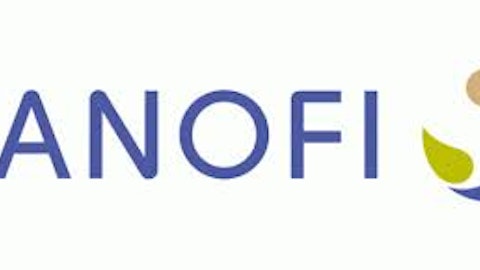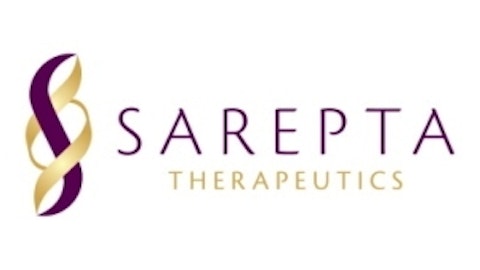These acquisitions are important for AstraZeneca as the company’s sales and profits are falling. Last year, the company lost patent for one of its bigger sellers, the anti-psychotic drug Seroquel. Next year two other bestsellers, Nexium and Cresta, go off patent. The company pipeline is not very impressive and without these acquisitions and favorable results from their pipeline products, AstraZeneca may find it difficult to maintain dividends, leave alone raise them, despite its 62% dividend payout ratio.
GlaxoSmithKline plc (ADR) (NYSE:GSK) is committed to dividend payout
The problem with GlaxoSmithKline plc (ADR) (NYSE:GSK)’s dividend paying capacity is that, with a 4.2% yield and $2.51 annual dividend, the company distributes 88% of its income.
At the same time, it has recently shown a commitment to raise dividends, which shows that the stock offers a reasonable upside for investors looking to include it in their income portfolio.
GlaxoSmithKline plc (ADR) (NYSE:GSK) will be losing exclusivity on a number of products next year. However, the company has a strong pipeline and at least 14 drugs entering Phase III clinical trial data soon. Already it awaits regulatory approval of two candidates for treatment of metastatic melanoma along with Anoro, a LAMA/LABA drug, along with Relva/Breo for COPD and asthma.
Eli Lilly & Co. (NYSE:LLY) is hurting from patent expiration
Eli Lilly & Co. (NYSE:LLY) has been paying dividends since 1987 and had been increasing them every year from 2000 to 2009. Since 2009, it has been paying $0.49 per share every quarter. However, the company’s dividend payout ratio of only 47% leaves room for growth.
On the other side, the company has suffered a lot due to patent expirations. It lost exclusivity on Zyprexa last year and Humalog (estimated global sales: $2.52 billion) in May this year. In December 2013, it loses patent on Cymbalta (estimated global sales in 2012: $4.9 billion). The company has adopted the policy of raising prices to meet challenges from patent expirations and also has twelve drug candidates in Phase III trials for a range of diseases such as diabetes, depression, Alzheimer’s and solid tumors.
Considering the revenue loss the company has taken and an uncertain future of pipeline products, it appears unlikely that the company will be able to raise its dividend in the near future.
Conclusion
All three of these companies are strong, with a proven track record of profitability and dividend payout. Investing in any of them is recommended at any time provided the price is correct.
However, for income investment, future dividend increases appear more likely in the case of GlaxoSmithKline plc (ADR) (NYSE:GSK). AstraZeneca and Eli Lilly & Co. (NYSE:LLY) have big challenges to face in the coming years and maintaining and/or raising dividends may not be that easy for them.
The article Will These Pharma Stocks Maintain Their Yields? originally appeared on Fool.com is written by Kanak Kanti.
Kanak Kanti De has no position in any stocks mentioned. The Motley Fool has no position in any of the stocks mentioned. Kanak is a member of The Motley Fool Blog Network — entries represent the personal opinion of the blogger and are not formally edited.
Copyright © 1995 – 2013 The Motley Fool, LLC. All rights reserved. The Motley Fool has a disclosure policy.





